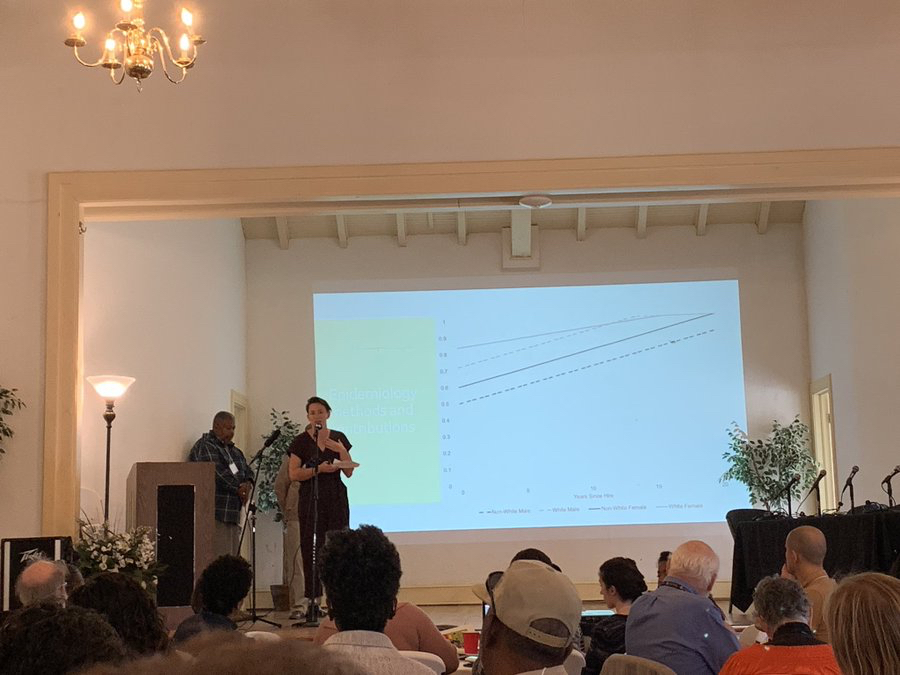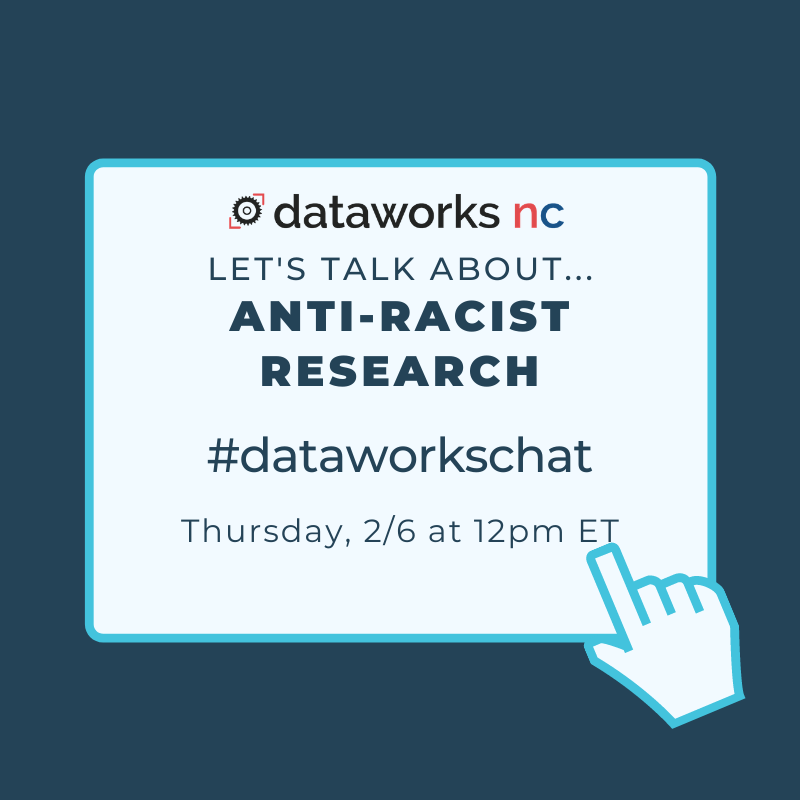I’m the health data analyst with DataWorks and a PhD student in epidemiology at UNC-Chapel Hill. I’m using these posts as space to reflect critically on my dissertation, a collaborative project with the North Carolina Environmental Justice Network and the Concerned Citizens of West Badin Community which assesses race and gender disparities in work exposures and health at an aluminum smelting facility in Badin, NC. Through this collaboration and other projects I’ve participated in, I’ve learned how research can be a powerful tool for highlighting community concerns, and how it can undermine organizing efforts.

What is Possible for Research that Supports Social Justice?
“I encourage us as researchers to rethink our deficit-based approaches in favor of highlighting resiliency and resistance.’”
Sari Reisner
My traditional health research training makes it second nature to criticize methods and studies. There is a ton of really good discussion and documentation of ways in which health research reproduces racism, but I would like to see more aspirations and opportunities to do better. In that spirit, I’d like to open this post up for discussion, in hopes that this series can be a collaborative process in addition to a material tool kit of antiracist methods.
I’d argue that what we need is a more expansive view of what public health is, a political commitment to health that understands structural inequality, and a challenge that pushes the boundaries of what becomes standardized as acceptable practice.
At DataWorks…
We are mapping and illustrating privilege in order to be truthful about “underprivilege.” The two states don’t exist independently and people without resources exist side by side with people whose resources are protected. Examples of this include:
- When we talk about the impact of redlining over the decades and into the present, we can’t overlook that in the same history nearby communities were simultaneously blue- and green-lined to be protected and invested in.
- While redlining wrote inequality into the urban landscape, racial covenants protected whiteness and the wealth and assets available to white people in newly-built suburbs. That needs to be illustrated for our community. Several projects around the US are doing that now:
- And our current practices of policy and opportunity need to be approached in the same way. We can’t focus on geographically concentrated poverty without focusing also on concentrated wealth and how programs like the mortgage interest deduction contribute to spatial and racial protection of wealth.
In my dissertation research…
One place I’ve turned is the Critical Race Theory literature. A further reading I have been chewing on (and would love company)…
Critical Race Theory, Race Equity, and Public Health: Toward Antiracism Praxis
Chandra L. Ford, PhD and Collins & O. Airhihenbuwa, PhD
It’s part of a living library the Epi & Justice Group has been reading together. You can dive into that here.
We’ll be treating this post as a living library and invite you to share resources we can all turn to for framing our antiracist work. We’ve started the conversation out with 1) a theme we at DataWorks are trying to incorporate into our projects, and 2) a suggested further reading.
We’d love to hear your feedback and thoughts on this content! Leave us a comment, or join us for our Twitter chat about antiracist research methods on February 6 at noon.
Shout out to Alexandra Chassanoff for information about the racial restrictive covenants archives we mentioned.
This is part 3 of a 3-part blog series that examines the relationship between research and community organizing.
Research and Community Organizing Series:
Part 1: 3 Ways in Which Research Can Be Racist
Part 2: 3 Ways to Do Antiracist Research


Leave a Reply